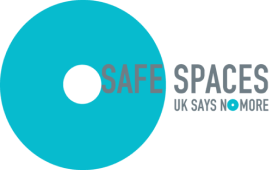I was broken when I came to you. My life felt futile, my existence pointless. I had been crying for days. I was always tired and never hungry. My body weight was down by 15lbs. I’d been suffering anxiety attacks, both day and night, for several weeks. Muscles in my arms and legs were twitching uncontrollably. I’d been to the hospital’s emergency department twice with thoughts of suicide. I was trying to hide it, but I know I looked sick. I didn’t want to admit my mental illness to anyone, but I couldn’t go on hiding my depression. So I came to you.
My brain had turned against me, but you joined my side of the battle.
Depression is like a magnet for negative thoughts, so I expected the worst. Fearful of stigma, I told you a softened version of what was happening to me. You saw right through me. You saw how serious it was. You listened, didn’t rush me, and were kinder than I could have expected. At that time nothing was capable of making me happy, but my meeting with you created a spark of hope. Hope that I would get through this, that others might understand.
My brain turned against me during my depression, but you instantly joined my side of the battle. You reassured me. You told me you had noticed something was wrong and had been wondering how to approach it with me. You said I was good at my job and that I was clearly unwell. You told me that I would get better, that I needed rest, and that you would do everything in your power to help that happen – which you did.
You immediately helped me take time off from work. Following your instruction, I went home after that very same meeting. You helped me navigate the work procedures for dropping to half-time work. You were prepared to accept full-time sick leave, but understood my reluctance of being home alone all day.
Half-days were more difficult for you to organise, yet you made it happen. You rallied my work team together and developed a plan for reducing my stress and workload. You treated my mental illness the same way you would have treated any other serious illness – with complete and total kindness.
You never rushed me to return to work. You encouraged me to take my time. You told me of the importance of being fully well to avoid relapse. You spoke to me with such kind understanding that every time I left your office I felt better.
You dealt with a lot of stuff. You and my work team made some stressful decisions without letting me know – without me having to feel any of the pressure. You all took on extra work so I could do less. You never complained about it and you never sought thanks for what you did.
Depression convinces the sufferer that they should deal with it all on their own. I’m glad that I didn’t. I credit a few people with getting me through my depression: my wife, my psychiatrist, and you. Thank you for helping to save my life. I will never forget the way you treated me. I will always remember your kindness.
I don’t know where your empathy comes from – personal experience, experiences of a family member or friend – or just having a kind heart. Wherever it comes from, I am glad that when I went through the worst experience of my life, I was working for you.
Thank you.
(c) The Guardian



